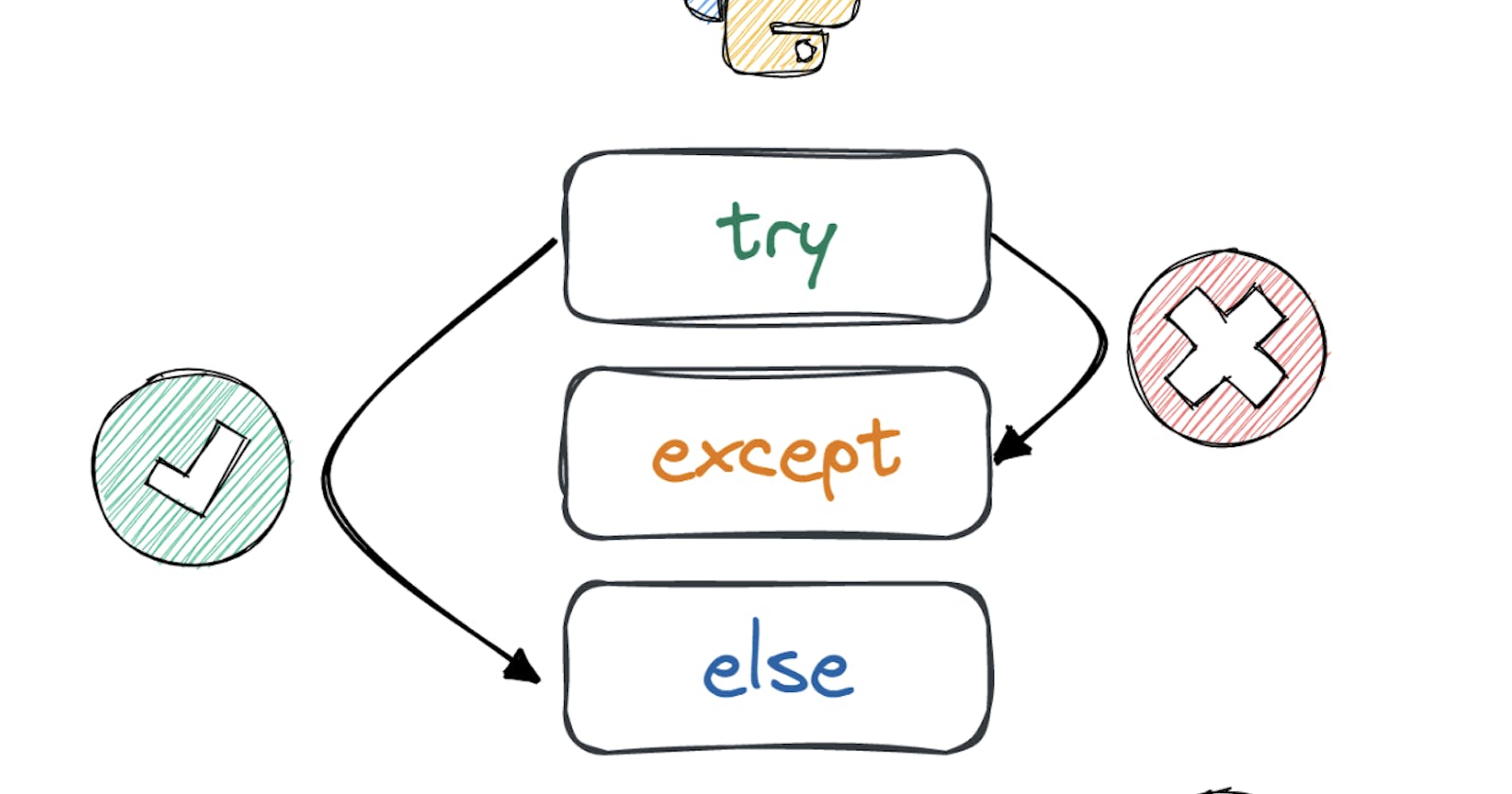- ArithmeticError
- Raised when an error occurs in numeric calculations
- AssertionError
- Raised when an assert statement fails
- AttributeError
- Raised when attribute reference or assignment fails
- Exception
- Base class for all exceptions
- EOFError
- Raised when the input() method hits an “end of file” condition (EOF)
- FloatingPointError
- Raised when a floating point calculation fails
- GeneratorExit
- Raised when a generator is closed (with the close() method)
- ImportError
- Raised when an imported module does not exist
- IndentationError
- Raised when indentation is not correct
- IndexError
- Raised when an index of a sequence does not exist
- KeyError
- Raised when a key does not exist in a dictionary
- KeyboardInterrupt
- Raised when the user presses Ctrl+c, Ctrl+z or Delete
- LookupError
- Raised when errors raised can’t be found
- MemoryError
- Raised when a program runs out of memory
- NameError
- Raised when a variable does not exist
- NotImplementedError
- Raised when an abstract method requires an inherited class to override the method
- OSError
- Raised when a system related operation causes an error
- OverflowError
- Raised when the result of a numeric calculation is too large
- ReferenceError
- Raised when a weak reference object does not exist
- RuntimeError
- Raised when an error occurs that do not belong to any specific expections
- StopIteration
- Raised when the next() method of an iterator has no further values
- SyntaxError
- Raised when a syntax error occurs
- TabError
- Raised when indentation consists of tabs or spaces
- SystemError
- Raised when a system error occurs
- SystemExit
- Raised when the sys.exit() function is called
- TypeError
- Raised when two different types are combined
- UnboundLocalError
- Raised when a local variable is referenced before assignment
- UnicodeError
- Raised when a unicode problem occurs
- UnicodeEncodeError
- Raised when a unicode encoding problem occurs
- UnicodeDecodeError
- Raised when a unicode decoding problem occurs
- UnicodeTranslateError
- Raised when a unicode translation problem occurs
- ValueError
- Raised when there is a wrong value in a specified data type
- ZeroDivisionError
- Raised when the second operator in a division is zero

